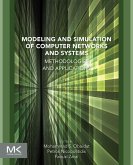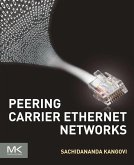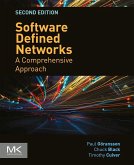Malware Diffusion Models for Wireless Complex Networks: Theory and Applications provides a timely update on malicious software (malware), a serious concern for all types of network users, from laymen to experienced administrators. As the proliferation of portable devices, namely smartphones and tablets, and their increased capabilities, has propelled the intensity of malware spreading and increased its consequences in social life and the global economy, this book provides the theoretical aspect of malware dissemination, also presenting modeling approaches that describe the behavior and dynamics of malware diffusion in various types of wireless complex networks.
Sections include a systematic introduction to malware diffusion processes in computer and communications networks, an analysis of the latest state-of-the-art malware diffusion modeling frameworks, such as queuing-based techniques, calculus of variations based techniques, and game theory based techniques, also demonstrating how the methodologies can be used for modeling in more general applications and practical scenarios.
Sections include a systematic introduction to malware diffusion processes in computer and communications networks, an analysis of the latest state-of-the-art malware diffusion modeling frameworks, such as queuing-based techniques, calculus of variations based techniques, and game theory based techniques, also demonstrating how the methodologies can be used for modeling in more general applications and practical scenarios.
- Presents a timely update on malicious software (malware), a serious concern for all types of network users, from laymen to experienced administrators
- Systematically introduces malware diffusion processes, providing the relevant mathematical background
- Discusses malware modeling frameworks and how to apply them to complex wireless networks
- Provides guidelines and directions for extending the corresponding theories in other application domains, demonstrating such possibility by using application models in information dissemination scenarios
Dieser Download kann aus rechtlichen Gründen nur mit Rechnungsadresse in A, B, BG, CY, CZ, D, DK, EW, E, FIN, F, GR, HR, H, IRL, I, LT, L, LR, M, NL, PL, P, R, S, SLO, SK ausgeliefert werden.









